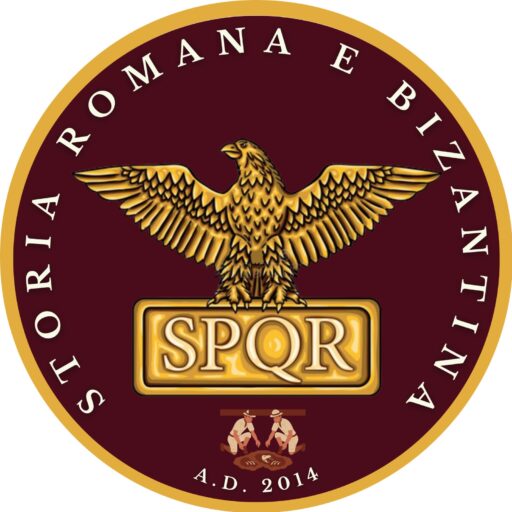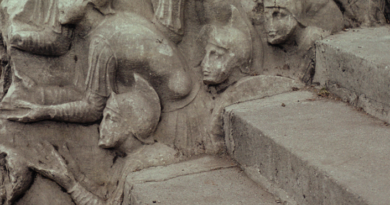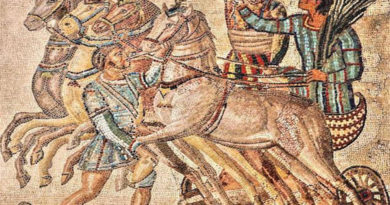Antioch Earthquake (May 20-29, 526 AD) in ancient sources
526, May 20-29th Antioch; Dafneh; Seluecea. Aftershocks. Liquefaction at Antioch. Fire in Antioch. Sources.
«A large catastrophe occurred in Antioch. Citizens were buried under the debris. The houses, located only near the mountain, survived. The rest of the buildings were completely destroyed. Fire following the earthquake destroyed the Big Church (so was named the ancient church of Antioch) and the remaining houses. There were 250000 casualties because of holidays. Shocks lasted 18 months. Some buildings in Selucea and Dafneh fell down. / A disastrous earthquake was at Antioch, causing a great fire and thousands of deaths. There were fire and liquefaction resulted by the earthquake at Antioch, and everything had been destroyed, 250000 people perished.» [Malalas]
«In Antioch, the disaster was on the 7th hour, fire from the land and sky. City wall, houses and churches were destroyed. There was a fire following the earthquake. The Big Church was burned after 7 days and destroyed completely. There were 255000 casualties». [John of Ephesus]
«A severe earthquake occurred in Antioch where most of the buildings and the most beautiful ones fell down. There were 300000 casualties. Dafneh was struck by a violent earthquake which reduced the whole city to ruins and three hundred thousand Antioch perished.» [Procopius of Caesarea]
«An earthquake, followed by a fire, occurred in Antioch.» [Evagrius Scholasticus]
«A great earthquake ruined Antioch.» [Chronicon Edessenum]
«A severe earthquake in Antioch. Houses fell down over their inhabitants. […] Much of Antioch collapsed and vast numbers of people were killed.» [Zachariah of Mitylene]
«The earthquake split Antioch and Selucea, no damage to the desert place between the mountain and the city where runs the river of Orontes.» [Giovanni Lido]
«A severe earthquake destroyed Antioch. The fire, following the earthquake, increased by the wind.» [Marcellinus Comes]
«An earthquake and a fire were in Antioch. Houses were completely destroyed as well as a house located on the nearby hill. Many churches were destroyed or divided in two parts from the bottom to the top. The Big Church was destroyed. The casualties were 250000. Towns of Dafneh and Selucea at 20 miles from Antioch were destroyed.» [John of Nikiu]
«A large part of Antioch was destroyed by the earthquake. The survived citizens were killed by the fire.» [Theophanes]
«A severe earthquake. Antioch was destroyed. The casualties were 255000.» [Chronicle of 819]
«An earthquake and a fire were in Antioch. There were many casualties.» [Georgius Monachus]
«Most of Antioch was destroyed by the earthquake and fire.» [Leo Grammaticus]
«There was an earthquake, followed by 6 days fire. There were many thousands of casualties.» [Georgius Cedrenus]
«The earthquake produced a big opening. The fire killed the survivors.» [Michael Glykas]
«An earthquake and a fire occurred in Antioch, destroying all buildings and churches.» [Chronicle of 1234]
«An earthquake occurred in Antioch. The casualties were 255000. Shocks continued for one year and six months.» [Girgis Bar Hebraeus]
Aftermath. In Constantinople, Justin I reportedly reacted to the news of the earthquake by removing his diadem and crimson chlamys. He entered the church without these symbols of his rank and publicly lamented the destruction of Antioch. He arranged for ambassadors to be sent to the city with sufficient money for both immediate relief and to start Antioch’s reconstruction. The rebuilding of the Great Church and many other buildings was overseen by Ephraim, the comes Orientis, whose efforts saw him replace Euphrasius as the Chalcedonian Patriarch of Antioch. Many of the buildings erected after the earthquake were destroyed by another major earthquake in November 528, although there were far fewer casualties.




